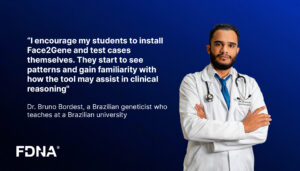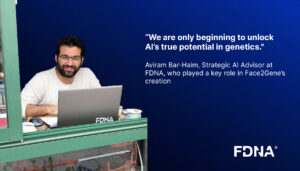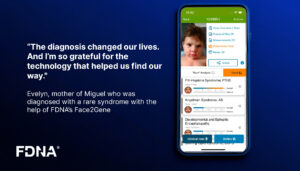September 22, 2017
“FDNA developed a suite of apps called Face2Gene that use facial analysis to help diagnose diseases. Down syndrome would be a good example of that. Clinicians have been evaluating facial features for decades to help them reach a clinical diagnosis of genetic syndromes and ordering appropriate genetic testing to confirm them. We have built the most comprehensive and largest database of data representing facial images of patients with genetic disorders. We use deep learning to extract unique patterns from those facial images that correlate not only to a disease but also to the exact genetic cause of that disease. When a doctor uses Face2Gene, we analyze the patient photo and return a list of diseases from our database that can fit those patterns.”
The article discusses FDNA and the transformative impact of deep learning in the medical field through the company’s Face2Gene platform. Face2Gene utilizes advanced AI to analyze patients’ facial features and detect phenotypic markers indicative of genetic disorders. It also highlights how deep learning enhances the platform’s ability to recognize these markers with high accuracy and speed, facilitating early and expediting the diagnoses of rare diseases. The integration of deep learning into Face2Gene represents a significant leap forward in medical diagnostics, promising improved outcomes for patients by allowing clinicians to identify and address genetic conditions more effectively.


